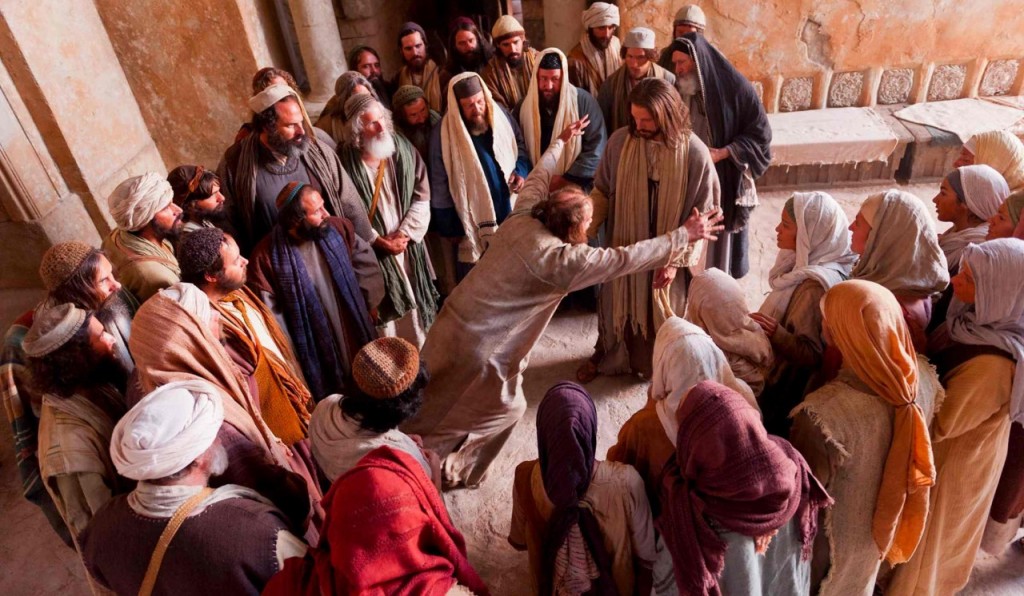Healing and Hope
Sixth Sunday of Ordinary Time
“I do will it. Be made clean.” Mark 1:41

The readings from Leviticus and from the Gospel of Mark today speak of healing and hope. Leviticus outlines procedures to prevent the spread of leprosy, a skin disease understood to be a great danger to the community. Those with the disease were isolated and ritually impure. Absent some cure from God, they were considered beyond hope. Their lives were like a living death, and likely they saw no future hope in their lives. Jesus’ healing of a leper was thus a profound sign of the promised reign of God, which Jesus had earlier announced. The healing was like raising the leper up from death, and thus a hint of Jesus’ resurrection. Where are there “lepers” today, those isolated or outcast from our communities? Who are those our society considers beyond hope, or deems not worth the trouble to offer hope? How can we imitate Jesus in offering a healing touch to them?
Surrending Control
The Gospel today concludes the first chapter of Mark, which traces the rapid expansion of Jesus’ ministry. Excitement about Jesus grows so much that he can’t enter a town without being besieged. His healing of a leper results in a reversal: the leper, who had been isolated from the community, is now free to speak with everyone. Jesus, who before could speak freely, now must isolate himself from the crowds. By serving others, Jesus lost some control over his ministry. This is the first hint of what happens later in Mark. Jesus’ displays of power—over illness, over evil spirits, over nature— eventually lead him to the “powerlessness” of the cross. The experience of Jesus guides us in our own efforts to be of service. Surrendering control is often very difficult. To be a servant is to engage with others, where frequently we lose some control over our freedoms, time, and energies. Often there is a cross or two to bear. As Jesus let go of control in his life, he also placed his trust in his Father. He invites us to do the same.
For the Glory of God
In today’s passage from First Corinthians, Paul concludes his extensive reflections on a variety of issues in Christian life, summarizing with “whatever you do, do everything for the glory of God.” Beyond the specific problems he addresses, Paul invites his listeners deeper, to consider the primary orientation of life in Christ. We live “for the glory of God” when we organize our lives around God’s values and purposes. We find our identity within Goa’s story as described in the scriptures. We are called to join God’s work in care for others. Just like Paul, we wrestle with many difficult problems emerging from the messiness of daily living. As Lent approaches, we might claim some time to reflect upon how life’s messiness connects with our identity and calling.
Readings of the Week
Monday: Gn 4:1-15, 25; Ps 50:1, 8, 16bc-17, 20-21; Mk 8:11-13
Tuesday: Gn 6:5-8; 7:1-5, 10; Ps 29:1a, 2, 3ac-4, 3b, 9c-10; Mk 8:14-21
Wednesday: Jl 2:12-18; Ps 51:3-6ab, 12-14, 17; 2 Cor 5:20 — 6:2; Mt 6:1-6, 16-18
Thursday: Dt 30:15-20; Ps 1:1-4, 6; Lk 9:22-25
Friday: Is 58:1-9a; Ps 51:3-6ab, 18-19; Mt 9:14-15
Saturday: Is 58:9b-14; Ps 86:1-6; Lk 5:27-32
Sunday: Gn 9:8-15; Ps 25:4-9; 1 Pt 3:18-22; Mk 1:12-15
Saints & Special Observances
Sunday: Sixth Sunday in Ordinary Time; World Marriage Day; Valentine’s Day
Monday: Presidents’ Day
Tuesday: Mardi Gras; Shrove Tuesday
Wednesday: Ash Wednesday; Fast and Abstinence; Almsgiving
Friday: Abstinence
